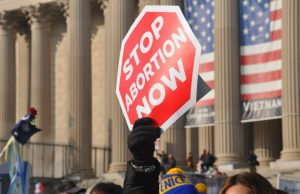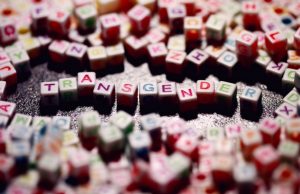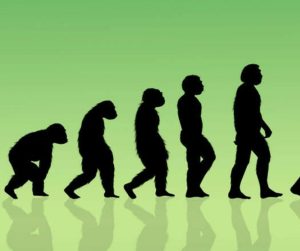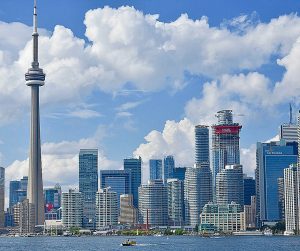Most controversial topics in the world: There is usually controversy in every facet of life; in the news, we watch, in the entertainment we like, in the politicians we like, and, yes, in the politicians we hate. But what topics are the most controversial? Which issues split us the most fiercely, and which public discussions best describe who we are? We provide a factual rank list of The 14 Top Controversial Topics as well as a concentrated but wholly unbiased investigation of each of the topics that spark the most intense public debate to provide an answer to that query.
Recommended: Countries with the Best Justice System in the world
Top 14 Most Controversial/Discussed Issues In The World 2024
1. Gun Control: In the United States, the subject of gun violence has long been divisive. Every year, mass shootings and other forms of gun violence claim the lives of close to 40,000 Americans. The debate over gun control centers on how the Second Amendment should be interpreted.

It declares that it is unlawful to infringe on a person’s right to keep and bear arms since doing so is essential to the security of a free state. The “right of the people to keep and bear weapons” is cited by proponents of gun rights as the reason why the government cannot regulate gun ownership. As a result, they reject any legislation that would restrict their access to purchasing, owning, or accessorizing firearms.
Due to the high prevalence of gun violence and the increasing number of mass shootings, the discussion has become more heated nowadays. Intense discussions over the sale of assault rifles, background checks for gun purchasers, and the correlation between gun violence and mental illness have been generated by the rising frequency of mass shootings.
2. Abortion: The act of ending a pregnancy before it may be carried to term is known as an abortion. The debate over abortion is linked to continuing state and federal disputes over the legality of the procedure in the US. One of the most contentious issues in American public conversation is abortion.

Opinions on abortion may have associated religious, political, and cultural ramifications. Two opposing viewpoints dominate the discussion: the pro-choice viewpoint, which holds that abortion is a woman’s constitutionally protected right; and the pro-life viewpoint, which holds that abortion is immoral and that the government should have the authority to forbid or punish those who engage in it.
Recommended: Countries with the Most Beautiful Women in the world
3. Religious Freedom: Every American is regarded to have the fundamental right to freedom of religion. “Congress shall make no law respecting an establishment of religion, or prohibiting the free exercise thereof,” the First Amendment declares. However, how it is implemented continues to be a contentious issue.
Politics and religious debates can be divisive because they delve deeply into how individuals see the world. “Don’t combine religion and politics,” as the saying goes. The First Constitutional Amendment forbids both restrictions on a person’s right to freely exercise his religion and government favoring one religion over another. It also makes sure that neither the church nor the government can rule the other.
4. Animal Right: Animals should not be used for commercial agriculture, medical research, or any other human-beneficial activities, according to activists of animal rights. Protecting animals from meeting human needs is the main source of conflict in this situation. 39 percent of Americans, according to Gallup, think it is wrong to use animals.

According to Gallup, fewer individuals in 2020 support cloning animals, purchasing and wearing apparel made of animal fur, and performing medical experiments on animals than they did in the past. Animals should not be kept in captivity or subjected to abuse or neglect, according to proponents of animal rights. The animal rights movement also contends that using animals for food, labor, or study is unethical.
Recommended: Differences Between Law and Ethics
5. Black Lives Matter: A political movement to stop police violence against Black people is known as “Black Lives Matter.” BLM was founded in response to numerous cases where law officers used excessive force, killed a Black person, and received little to no legal punishment. BLM has developed into one of the biggest movements in American history.

According to recent surveys, 15 to 26 million Americans will take part in BLM protests in 2020 for the killings of Breonna Taylor, Elijah McClain, and George Floyd, among other victims of police brutality. Police brutality against Black people is seen as an oppressive practice by supporters of the movement, who claim that it is one sign of social, legal, and judicial injustices. Advocates also contend that failing to hold police accountable for employing excessive force shows that Black lives are less important than White lives.
Also see: Most Powerful Countries In Asia 2022
6. Privacy Right: Conflicting priorities between personal privacy and public safety are at the heart of the right to the privacy debate. To safeguard its interests in national security, the U.S. government has increased its capacity to undertake widespread surveillance on its people.

Advocates for privacy claim that government surveillance is a violation of the Fourth Amendment, which forbids arbitrary searches and seizures. They also express worry about private companies that can collect and keep enormous amounts of personal data, like Google and Facebook. Mass surveillance proponents contend that the right to privacy should not be prioritized over the need for the government to safeguard Americans from terrorism and foreign meddling.
7. Transgender Right: Protection for people who identify as a gender other than the one that was assigned to them at birth is the goal of transgender rights. They contend that everyone, regardless of gender identity or expression—transgender, cisgender, non-binary, or intersex—should be entitled to the same protections under the law. Advocates for transgender rights aim to improve and broaden existing legal protections in common law, healthcare, and the workplace.

The idea that persons should have the freedom to identify as a gender different than their assigned birth gender is rebuffed by those who oppose transgender rights. An important source of anti-transgender attitude is frequently religion. Christians dispute the idea that a person can identify with a gender other than the one assigned to them at birth.
Also see: Best Times to Read and Understand Effectively
8. Marijuana Legalization: Marijuana remains a contentious topic nationwide even if it is legal in some places. The main points of contention are whether it should be legal for recreational use, similar to alcohol and whether it should be used as a medicine. Currently, 16.9% of American adults, or 55 million people, use marijuana, with 43 percent of college students being users. Cannabis supporters see marijuana usage as a personal decision and contend that regulations restricting that decision violate individual liberties.

Additionally, they contend that enforcement frequently unfairly targets blacks and other at-risk populations and that prohibition prohibits individuals in need from accessing competent medical care. Prohibitionists contest the legality of marijuana’s medical usage and contend that any possible advantages are outweighed by the dangers it poses to the general public’s health, and safety, including civic order.
9. Marriage Equality: Gender and sexual orientation shouldn’t be a barrier to accessing legal rights, including marriage rights, according to those who favor marriage equality. They contend that every couple should have the same level of legal protection, fiscal advantages, and social acceptance. Marriage, according to opponents of marriage equality, must be a relationship between a man and a woman; allowing any other kind of partnership would be detrimental to the institution of marriage and therefore be prohibited by law.
The majority of those opposed to marriage equality holds a religious perspective and contend that non-heterosexual romantic relationships are wicked in God’s eyes because they go against what the Bible teaches. They contend that the state must intervene to stop these unions, reigniting the debate over the division of church and state.
Recommended: Countries with the Best Education System in Africa
10. Capital Punishment: The execution of a criminally guilty person by the state, because they are regarded unfit for rehabilitation, is referred to as “the death penalty” or “capital punishment” in criminal sentences. It is legal in 28 states and under federal law. Some crimes, in the opinion of advocates for the death penalty, are so horrifying that incarcerating the perpetrators would be hazardous.
They also think that the death sentence gives victims, survivors, and their families a sense of justice and serves as a deterrence to future potential offenders. Human life is too important to be punished, no matter the offense, according to opponents of the death penalty, who argue that governments shouldn’t have the power to decide who has the right to live or die.
Recommended: Oldest Games In The World (With Pictures)
11. Evolution: Although the majority of scientists agree that monkeys and humans evolved from one another, many Americans continue to deny this. About 1 in 5 American adults, according to the Pew Research Center, think that nothing has ever changed.

Those who support the notion typically hold Charles Darwin’s natural selection theories in high regard because they are seen as the primary forces behind evolution. While some individuals accept Darwin’s fundamental premise, some prefer employing more modern scientific theories to explain how change occurs.
The core of those who oppose evolution is typically religion. People who consider themselves “creationists” believe that God made people in the image of himself. The tenets of the Bible and the Judeo-Christian notion of a God who has the power to alter the path of human history, according to this argument, are irreconcilable with evolutionary science. This perspective, sometimes referred to as the “thesis of intelligent design,” contends that life could not have arisen by accident and that it must have been created by an omnipotent creator.
Discussions about education tend to be where this disagreement is most noticeable. Because Darwin’s theories go against their worldview, many Evangelical Christian organizations oppose teaching evolution in science schools. Others support integrating the scientific theory of intelligent design with the scientific theory of evolution in public school science courses, which has raised discussion regarding the separation of religion and state.
Also see: Top 10 Most popular kpop group worldwide
12. Vaccines: Vaccines have altered the state of global health since they can shield against some diseases. Innovative vaccines have made infectious diseases including tetanus, smallpox, and polio non-lethal.

According to the Centers for Disease Control and Prevention (CDC), immunizations protect Americans from tens of thousands of illnesses each year. Immunization offers the best protection against many diseases, especially for children whose immune systems are already compromised. They might also help the COVID-19 pandemic be eradicated more quickly.
There has, however, recently been some vaccine resistance. The opposition to vaccines is fueled by a number of things, including fear, false information, and a lack of faith in science. Opponents of vaccinations are often referred to as “anti-vaxxers.”
The common belief that vaccines cause autism, the argument that developing natural immunity is preferable than receiving vaccinations, and the claim that vaccines contain dangerous substances are some of the most persistent arguments against vaccines. Public health officials, doctors, and medical professionals have refuted these allegations over time.
Despite this, anti-vaxxers continue to contend that vaccines can be toxic and contain ingredients that are poorly understood or unreliable, leading to dangers that outweigh the advantages. Meanwhile, proponents of vaccination contend that it is the duty of all parents to protect their children by adhering to medical recommendations on vaccination delivery, developing herd immunity for society as a whole.
Recommended: How To Gain Admission With Low JAMB Score 2024
13. Global Climate Change: The following issues are at the heart of the discussion about global climate change: Real or fake global warming? Is human action the main cause? How potentially dangerous is it? How can we handle it?

Growing levels of greenhouse gases, primarily brought on by human-caused emissions, are causing Earth to warm, as seen by rising global temperatures, warming oceans, and melting ice sheets. Due to increases in atmospheric carbon dioxide, the planet’s average surface temperature has risen by around 1.62 degrees Fahrenheit since the 19th century.
Environmental organizations contend that it is morally required of people to stop climate change before present generations suffer the consequences. To that end, they back policies that aid in reversing climate change’s long-term effects.
Some climate change skeptics contend that the risks are overblown, while others believe that global warming is occurring but reject the data that implies it is caused by human activity. Climate change deniers are left with no choice but to oppose proposals for regulatory restrictions on emissions, claiming that the financial burden outweighs the environmental impact.
The effects of global climate change also extend to politics, foreign policy, and the economy. International agreements on climate change, governmental regulation, and the obfuscation of scientific evidence for political purposes frequently enter the discussion.
14. Immigration Reform: Immigration reform focuses on the laws that govern how immigrants can enter and remain in the country legally. Because the two major political parties have different ideologies, the government’s position on immigration restrictions frequently changes with each presidential administration.

The number of people seeking refuge, fleeing gang violence, drug violence, civil turmoil, and human trafficking in Latin America has increased immigration to the United States.
Some people think that the United States should allow admittance to anyone who comes here looking for opportunity, freedom, or a better life. Additionally, they oppose the conditions in immigration detention facilities because they consider them to be breaches of human rights and advocate legislation that would make it easier for people who entered the country illegally to get citizenship.
Others fear the economy would suffer and there will be a hazard to national security due to illegal immigration or even excessive legal immigration. For the purpose of reducing immigration and preventing illegal immigration, they favor stringent immigration laws and stricter border security measures.
Recommended: Best And Proven Habits Of Highly Successful Students
Conclusion
Controversy can be found anywhere. We must all decide how much we will contribute to the public conversation. College is a great place to learn more about these discussions and decide where you fit in. Therefore, we have decided to seize controversy by the bull. No of where you are in your academic career, you should anticipate and even look forward to the chance to learn about controversial topics.

Edeh Samuel Chukwuemeka, ACMC, is a lawyer and a certified mediator/conciliator in Nigeria. He is also a developer with knowledge in various programming languages. Samuel is determined to leverage his skills in technology, SEO, and legal practice to revolutionize the legal profession worldwide by creating web and mobile applications that simplify legal research. Sam is also passionate about educating and providing valuable information to people.